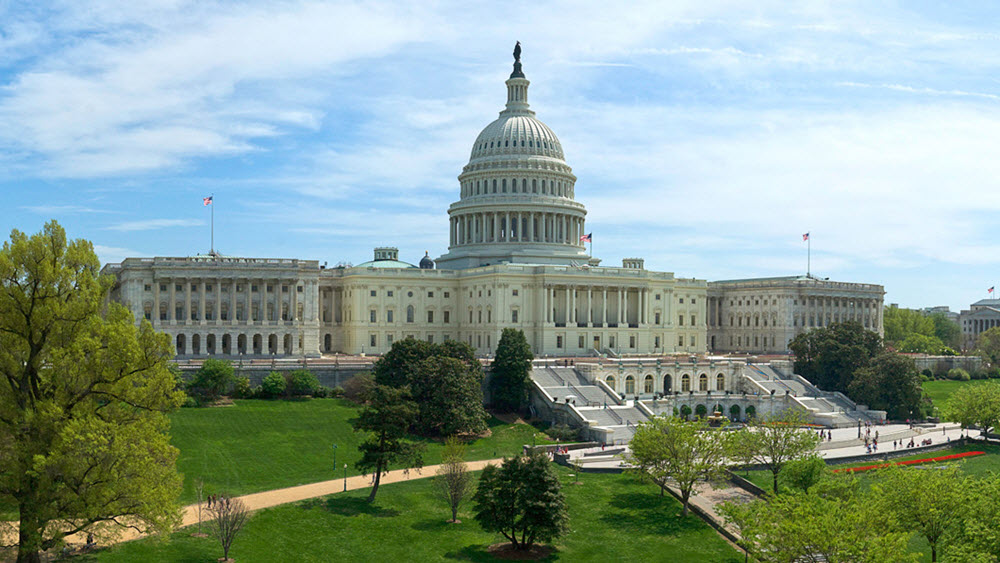Chinese Telecoms Take Pounding Over Supply Chain Security

The smarter way to stay on top of the multichannel video marketplace. Sign up below.
You are now subscribed
Your newsletter sign-up was successful
Chinese telecoms competed with Facebook Tuesday for companies most likely to succeed in ticking off Washington policymakers and interest groups.
While Facebook was getting hammered on how it used and monetized info and its online community, Huawei and ZTE were in crosshairs in the wake of the Justice Department's multiple-count criminal indictment of Huawei for theft of trade secrets and more, which came the day before a Senate Intelligence Committee hearing on "Worldwide Threats," which witnesses and legislators said included Chinese telecoms, or at least their technology employed in U.S. networks.
At that hearing, committee vice chair Mark Warner (D-Va.), said he was concerned about "the efforts of big Chinese tech companies – which are beholden to the CCP – to acquire sensitive technology, replicate it, and undermine the market share of U.S. firms with the help of the Chinese state."
The panel heard from the heads of all the intelligence agencies, and to a man and woman, they shared those concerns.
Related: Bill Introduced to Ban U.S. Tech to ZTE, Huwaei
FBI director Christopher Ray said the line between the Chinese government and ostensibly private companies has been blurred and the U.S. was waking up to that consensus opinion. He also said that Huawei and others "“pose a dual threat to both our economic and national security, and the magnitude of these charges make clear just how seriously the FBI takes this threat," according to Protect America's Wireless.
Defense Intelligence Agency director general Robert Ashley said that exercising due diligence over the U.S. supply chain was critical.
The smarter way to stay on top of the multichannel video marketplace. Sign up below.
Elsewhere on the Senate hearing calendar Tuesday (Jan. 29), Sen. Roger Wicker (R-Miss.), a senior member of the Armed Services Committee as well as new chair of the Senate Commerce Committee, asked a panel of national security experts about the threat of Chinese technology dominance, citing former House Intelligence Committee Chairman Mike Rogers' op ed that Huawei and ZTE were effectively an extension of the Chinese intelligence network."
Ely Ratner, former deputy national security adviser to the Vice President said that the supply chain threat posed by those companies is "absolutely real," according to Widker's office. He said that Huawei was "subject to new Chinese laws that give the state the right to use companies’ data and networks as they wish."
Also in the wake of the DOJ's indictments against Huwaei, the office of Sen. Marco Rubio (R-Fla.) said he has picked up four more co-sponsors for legislation to combat tech threats from China.
The bill "creates an Office of Critical Technologies & Security at the White House responsible for coordinating across agencies and developing a long-term, whole-of-government strategy to protect against state-sponsored technology theft and risks to critical supply chains."
The new sponsors are Sens. Michael Bennet (D-Colo.), Roy Blunt (R-Mo.), Chris Coons (D-Del.) and Susan Collins (R-Me.).
“The United States needs a more coordinated approach to directly counter this critical threat and ensure we better protect U.S. technology, and this important, bipartisan legislation will streamline efforts across the government," said Rubio. "I look forward to working with my colleagues and the Administration to enact this legislation and guard against these national security threats.”
Contributing editor John Eggerton has been an editor and/or writer on media regulation, legislation and policy for over four decades, including covering the FCC, FTC, Congress, the major media trade associations, and the federal courts. In addition to Multichannel News and Broadcasting + Cable, his work has appeared in Radio World, TV Technology, TV Fax, This Week in Consumer Electronics, Variety and the Encyclopedia Britannica.

